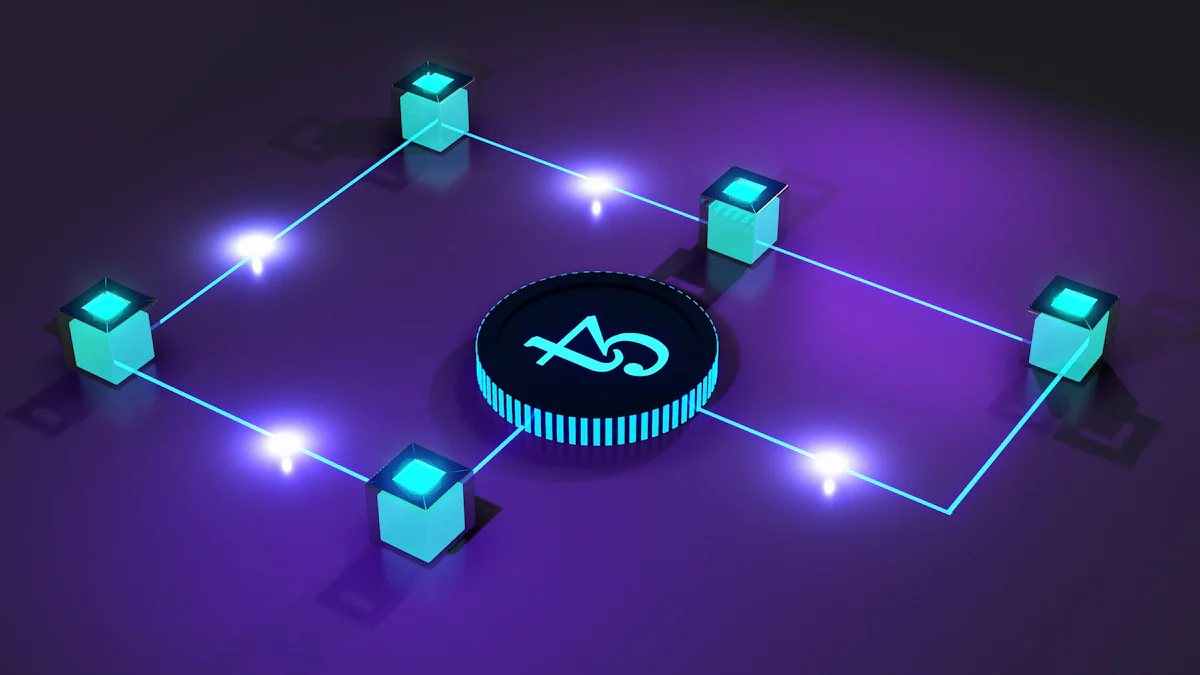Decentralized Finance (DeFi) Explained: A Complete Guide for 2024

The Era of Decentralized Finance
Understanding DeFi's Impact
The era of Decentralized Finance (DeFi) marks a significant shift in the financial landscape, introducing an innovative approach to traditional systems.
Grasping the impact of DeFi necessitates a clear understanding of its core components, including blockchain technology and cryptocurrency.
Within DeFi, decentralized governance and networks are pivotal in ensuring transparency and security, setting it apart from centralized financial systems.
DeFi Core Components
Blockchain Technology in DeFi
Blockchain technology serves as the cornerstone of DeFi, facilitating secure and transparent transactions through its decentralized ledger system. The utilization of distributed ledger technology within DeFi ensures that all transactions are recorded and verified across a network of computers, enhancing the security and integrity of financial operations. Moreover, the implementation of smart contracts, which are self-executing agreements with the terms directly written into code, automates processes and enforces agreements within the DeFi ecosystem. This innovative use of blockchain technology streamlines transactional processes while minimizing the need for intermediaries, thereby promoting greater efficiency and reducing operational costs.
Cryptocurrency's Role in DeFi
Cryptocurrencies play a fundamental role in enabling borderless and permissionless financial transactions within the DeFi space. By leveraging cryptographic ledger technology, cryptocurrencies facilitate peer-to-peer transactions without relying on traditional financial institutions. This eliminates geographical barriers and provides individuals worldwide with access to financial services. Furthermore, the use of cryptocurrencies within DeFi eliminates the need for traditional intermediaries, fostering greater financial inclusion by empowering individuals to participate in global economic activities seamlessly.
Decentralized Finance's Influence
Impact on Traditional Finance
The influence of decentralized finance (DeFi) extends to challenging the traditional financial system by offering enhanced accessibility and operational efficiency. By leveraging decentralized governance and networks, DeFi introduces a level of transparency and security that has the potential to revolutionize conventional financial practices. This shift towards a more open and distributed governance model not only challenges the existing centralized structures but also fosters an environment where financial operations are conducted with greater integrity and inclusivity.
Global Financial Inclusion through DeFi
One of the most profound impacts of DeFi is its ability to open up financial opportunities to individuals worldwide, irrespective of their geographic location or economic status. The decentralized governance and networks within DeFi play a pivotal role in promoting financial democratization and empowerment, ensuring that individuals have access to essential financial services without being hindered by traditional barriers. This shift towards a more open network model facilitates peer-to-peer interactions, ultimately contributing to global financial inclusion on an unprecedented scale.
Embracing Decentralization
The Future of Decentralized Finance
As we look ahead, the future of Decentralized Finance (DeFi) appears promising, with its adoption anticipated to continue growing and reshaping the financial landscape. The concept of decentralization not only fosters innovation but also enhances resilience within the financial ecosystem. By embracing a decentralized approach, the financial industry is poised to transition towards a more inclusive and transparent future. This shift away from centralized structures towards open and distributed models is expected to bring about profound changes in how financial services are accessed and utilized.
Challenges and Opportunities in Embracing Decentralization
While the prospects of decentralized finance are compelling, it is essential to acknowledge the regulatory and security challenges that accompany this paradigm shift. Addressing these challenges requires collaborative efforts among stakeholders to ensure the sustainable and responsible development of decentralized systems. By navigating these obstacles effectively, the financial industry can harness the full potential of decentralization while mitigating associated risks, thereby fostering a robust and secure decentralized financial environment.
Embracing Decentralization for the Future
In the coming years, embracing decentralization will continue to offer a transformative opportunity to reshape the financial landscape with its innovative and inclusive approach. The transparent and secure nature of decentralized finance has the potential to revolutionize traditional financial practices, promoting global financial inclusion on an unprecedented scale. Collaborative efforts are essential to address regulatory and security challenges, ensuring the sustainable development of DeFi. By navigating these obstacles effectively, the financial industry can harness the full potential of decentralization while mitigating associated risks, thereby fostering a robust and secure decentralized financial environment.